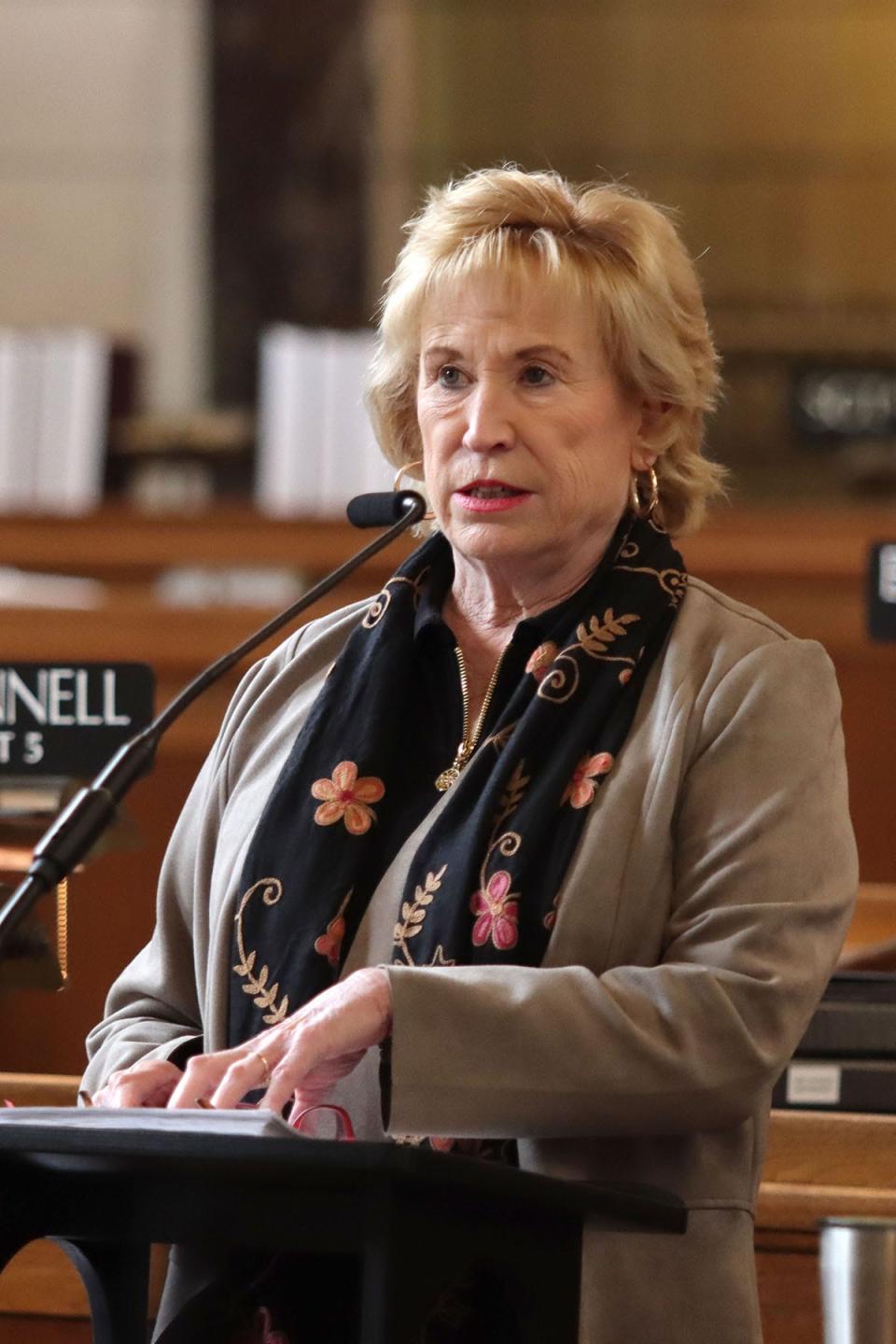Nebraska will vote in November to keep or toss controversial Opportunity Scholarship Act
Nebraska voters will decide in November if the controversial Opportunity Scholarship Act involving state money and donations to private schools will stay or go – an issue proving to be confusing, complicated and cantankerous.
In 2023, the legislature approved a bill that would allocate $25 million from state coffers to be donated for private school tuition. It does not provide taxpayer dollars directly toward private school vouchers.
Public school advocates quickly filed a petition to raise the question of using state money for private or parochial K-12 schools − invoking the separation of church and state. At the same time, supporters of the tax credit argued the bill offers children from less affluent families alternative educational opportunities, enflaming passions on both sides of school choice.
Omaha Sen. Lou Ann Linehan (R-Elkhorn) has requested that Secretary of State Bob Evnen declare the ballot initiative unconstitutional and keep it off November’s ballot. She says the state constitution places the power of taxation solely in the legislature’s hands.
“While I respect the petition process including the power of referendum, if this existing revenue measure adopted by the legislature can be repealed by referendum, the ability to set revenue policy would be undermined,” Linehan said in her letter to Evnen.

Support Our Schools, the group behind the referendum, sent a letter to Evnen stating that Nebraskans have a constitutional right to vote on the matter. The group argues that the tax credit is taking funding from public schools and giving it to private schools that are less accountable for discriminating against LGBTQ students.
“Every kid deserves equitable funding,” Nebraska State Educators Association president and Support Our Schools sponsor Jenni Benson said. “You cannot pick and choose who you think should benefit from those things like private and parochial schools are able to do.”
Supporters of the Opportunity Scholarship Act argue that the legislation does not take money away from public schools and that Gov. Jim Pillen approved a $1 billion funding boost for public education last year. Linehan also emphasized that it supports underprivileged kids in accessing the same educational resources and opportunities as other students.
“Even the best public school is not a good fit for every kid,” Linehan said. “We’re not treating low-income kids like we’re treating everyone else ... it’s unfair.”
More: School choice remains popular following COVID closures. What it means for students and schools.
The new law permits businesses and individuals to donate up to $100,000 yearly of their owed state income tax to organizations that award private school tuition scholarships. Estates and trusts can donate up to $1 million a year. It redirects money that would otherwise go into the state’s general revenue fund.
Scholarships through the act are awarded based on a tiered system that prioritizes students from low-income households, students who have been bullied, students with parents in the military, students in the foster care system or students with an Individualized Education Program.
Last month, Linehan introduced a bill to simplify the process of enabling people to remove their names from referendum petitions they had signed earlier. The only way to remove a name from a petition is by sending a letter and a notarized affidavit. The proposed bill would allow a person to have their name removed by sending a signed letter to the Nebraska Secretary of State.
Benson says that Support Our Schools thoroughly took all the steps to get the issue legally on the ballot, and voters should ultimately decide.
“Let us vote in November,” Benson said. “I don’t understand why you would challenge the second house of Nebraska, which is the citizen jury who has the right to vote on these things.”
If the law is repealed, Nebraska would join North Dakota as the only state not offering some public payment for private school tuition.
This article originally appeared on USA TODAY: Nebraska voters to decide Opportunity Scholarship Act will stay or go

